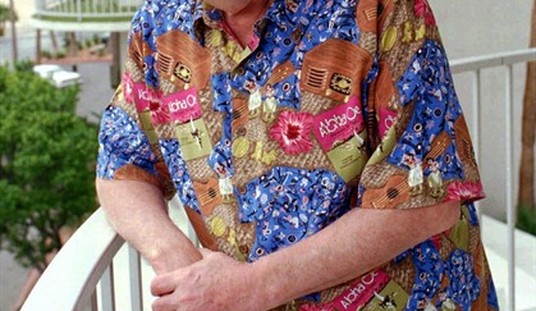In early July, I was concerned enough about the antics of Nancy Pelosi, Barack Obama, and Harry Reid that I coined the term “POR economy” to describe what they were creating with their anti-oil, high-tax agenda.
The tax-happy, Big Oil-punishing trio seemed to believe that a poor third-quarter economy would enhance their chances of winning the presidency and larger Congressional and Senate majorities. They appeared to be in a position to make it happen.
Their energy intransigence, the prospect of automatic tax increases as the Bush tax cuts expired, and potential further increases under a President Obama led me to observe that:
Businesses and investors are responding to their [Pelosi, Obama, and Reid’s] total lack of seriousness by battening down the hatches and preparing for the worst.
Three things have occurred since then to greatly reduce the chances that the economy will move into negative territory in the third quarter:
- President Bush and House Republicans have awoken from their slumber and gained the upper hand in the energy debate.
- Previously lukewarm John McCain has come out clearly for expanded drilling.
- Obama has performed poorly on the campaign trail, culminating with last Saturday’s disaster at Rick Warren’s church. Obama’s position “is more vulnerable than at any point since the primaries concluded.”
As a result, the palpable near-panic businesses and investors were exhibiting in early July has largely subsided.
The biggest factor in their improved outlook has been oil’s price retreat of over 20% from its all-time high of $147. [Update: in the two days since this column was written, oil prices have headed upward again, primarily because of the Russia-Georgia situation.] Although consumption has fallen, the bigger influences have clearly been President Bush’s executive order allowing offshore drilling in parts of Alaska and the tide turning towards the GOP in the Outer Continental Shelf drilling debate. These two developments have shown that the mere prospect of increased supply can bring down current prices, making it obvious that actual increases in supply, even if nominal at first, will bring them down even more.
Don’t get me wrong. This economy still isn’t, and shouldn’t be, impressing anyone. If it replicates the second quarter’s current sub-2% growth performance (pending revisions), that will be nice, given how things looked just a short time ago. But it remains unacceptable.
We have seen seven straight months of seasonally adjusted job losses. The housing and mortgage markets remain in the doldrums. The July Consumer Price Index and Producer Price Index reports released this past week indicate that inflation looms as a serious potential problem, possibly forcing Fed Chairman Ben Bernanke to raise interest rates at a very bad time.
Things are not going well. But the election questions are:
- First, is the economy bad enough — or perceived that way — to affect the election? Because of its unacceptable current condition, combined with years of relentless negativity by traditional media even when times were good, the answer is “yes.”
- Second, who will get pinned with the blame?
Normally the answer to the second question would be easy. If it’s bad, or perceived as such, it must be the fault of the party holding the White House, and that party’s presidential candidate is in deep trouble.
But I don’t see that being the case this November, for four reasons.
First, Pelosi, Obama, Reid, and the Democratic Party are on the side of energy obstruction, while the Republicans and McCain are pushing the drill-now, do-it-all alternative that is clearly what people prefer.
Second, the moratorium on most offshore drilling, which expires on September 30, is something that must be voted on every year. Pelosi, Obama, and Reid continue to act as if they’ll be able to extend it. The markets doubt it. The harder Pelosi et al. try, the more visible their failure will be. If they push too hard, they will be courting electoral suicide. The lose-lose problem is that a back-off will then give the GOP bragging rights.
Third, the large states with the worst economies (Michigan, Obama’s Illinois, and Ohio) happen to have Democratic governors, and another (California) might as well have one. I don’t recall a period of economic sluggishness where four states performed so poorly while the rest of the country for the most part held its own.
Finally, no presidential candidate, at least in my lifetime, has called for massive tax increases in a difficult economy. Barack Obama has. His tax proposals are playing so poorly that he’s pulling back from some of his most extreme positions. One example: his idea to apply “the payroll tax” of 12.4% to all income over $250,000 (6.2% employee, 6.2% employer) has morphed into a “well, it might be okay if it’s 2% to 4%.”
But it’s too late. Everyone knows that it’s tax increases Obama wants, and if he becomes president, it’s tax increases we will get, regardless of their effect on the economy. He has turned what should have been an electoral advantage into a handicap. His vulnerability is quite understandable.









Join the conversation as a VIP Member